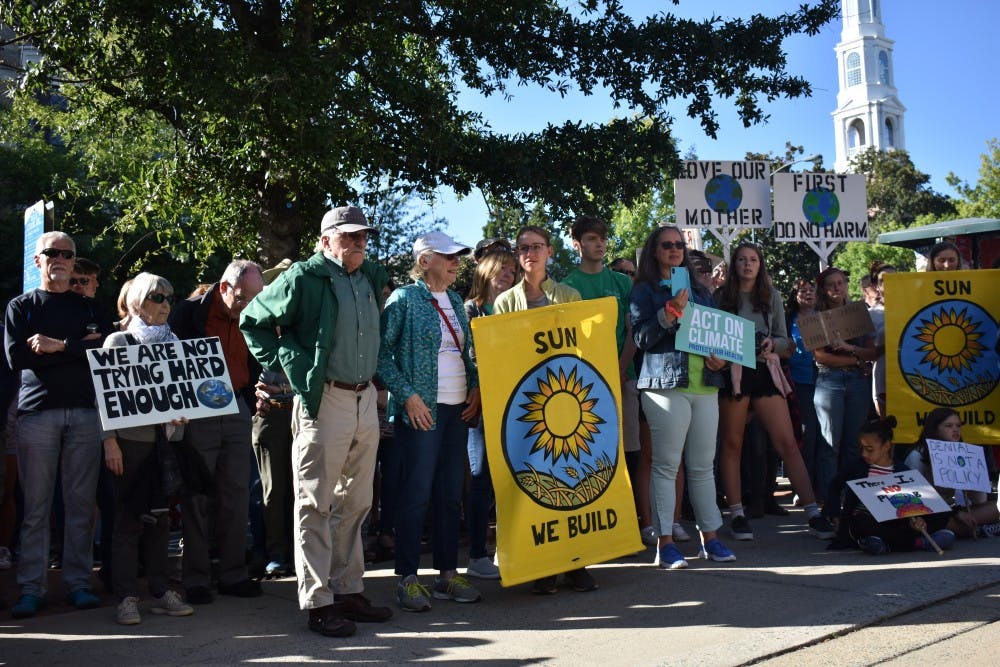As North Carolina enters a new decade, seen and unforeseen challenges lie ahead for the state and its 10.6 million people — one such challenge being that of climate change.
While climate change is often spoken of as a future dilemma, its effects are already being felt throughout North Carolina, particularly in coastal and low-lying regions. In 2018, the climate change-fueled Hurricane Florence devastated the eastern part of the state, shutting down campuses, causing $17 billion in damage and killing 39 people.
As the consequences of human-induced climate change become more tangible across the world and in North Carolina, calls for action have become louder and larger. In North Carolina, various groups and individuals are calling for more action and preparing for what 2020 has in store.
Dustin Chicurel-Bayard, interim director of the North Carolina chapter of the Sierra Club, cited prolonged droughts and coastal threats to freshwater resources as predominant issues the state faces.
Higher temperatures and increased rainfall also pose challenges to the state. He said the worst consequences of these environmental problems are often experienced by marginalized communities — particularly communities of color and those of a lower socioeconomic status.
”What tends to happen, and this proves to be happening with climate change at the moment, is that marginalized communities, poor communities, communities of color are those that are most impacted by environmental pollution and in this case the consequences of climate change,” Bayard said. “We’re seeing the persistent recurrence of communities that have been marginalized in the past be continually impacted to a much more severe degree.”
One such example is the water contamination that followed the construction of the Orange County Regional Landfill in 1972 near the Rogers Road community, a historically African-American community north of Carrboro and Chapel Hill. The landfill continues to threaten the environmental quality and health of the residents despite the Board of Orange County Commissioners voting to have it closed in 2013.
Robert Campbell, president of the Rogers-Eubanks Neighborhood Association, moved to the neighborhood around the same time the landfill opened. He said the county promised the residents at the time that they would receive access to amenities, such as municipal water and sewage and road pavement.
”At the time, when it began to talk about amenities, it seemed like it was a good idea to the community the way it was explained,” said Campbell.



